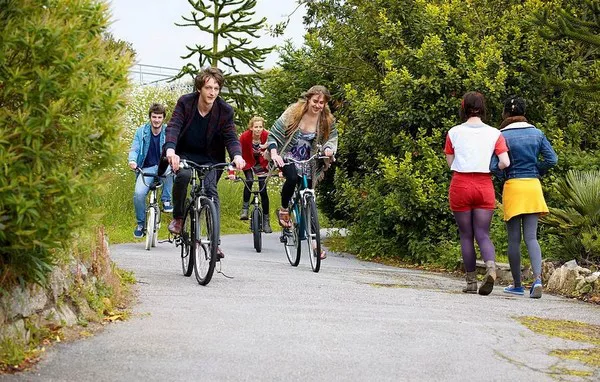In South Asian communities, discussing mental health has traditionally been accompanied by stigma, often silenced by the fear of societal judgment encapsulated in the phrase, “What will people say?” This apprehension, prevalent among immigrant parents and elders, underscores a deeply ingrained belief that acknowledging mental health struggles is shameful.
Sahaj Kohli, an Indian American therapist and writer renowned for her influential Instagram platform “Brown Girl Therapy,” has dedicated herself to dismantling this stigma. Launched in 2019, “Brown Girl Therapy” serves as a platform for candid conversations about mental health within the diaspora. Kohli’s latest endeavor, her debut book titled “But What Will People Say?,” aims to directly engage immigrant families in these critical conversations.
Reflecting on her own experiences, Kohli recounted grappling with mental health challenges in her twenties while residing with her parents, who inadvertently echoed the concern of societal perception. “What will people say about this?” her parents questioned, highlighting a pervasive preoccupation with external judgment. Kohli emphasizes the detrimental impact of such concerns, leading individuals to adopt performative behaviors and identities to conform to societal expectations.
The genesis of “Brown Girl Therapy” stemmed from Kohli’s transition into therapy amid personal struggles with mental health. Feeling a void in resources addressing the unique dynamics of immigrant families, Kohli embarked on creating a platform that resonated with individuals navigating similar challenges. With over 230,000 followers, “Brown Girl Therapy” has evolved into a hub for empowering mental health discourse, offering tailored advice on familial relationships, dating, and self-care for women of color.
Kohli’s book expands upon these themes, interweaving personal anecdotes, self-help strategies, and practical guidance. She underscores the importance of reaching South Asian immigrant parents, many of whom suppress their own trauma and overlook mental health concerns. Kohli acknowledges the reluctance of older generations to engage in this introspective work, often citing resignation or denial. However, she remains optimistic, highlighting instances where older immigrants have embraced the journey towards confronting stigma and prioritizing mental well-being.
Through “Brown Girl Therapy,” Kohli has encountered individuals who have embarked on this transformative path, challenging deeply entrenched narratives. With “But What Will People Say?,” she aspires to elevate these conversations further, fostering dialogue within South Asian households and encouraging a shift towards self-awareness and acceptance. Kohli maintains that it’s never too late for immigrant parents to embark on this journey, emphasizing the importance of challenging long-held beliefs for personal growth and collective healing.




























